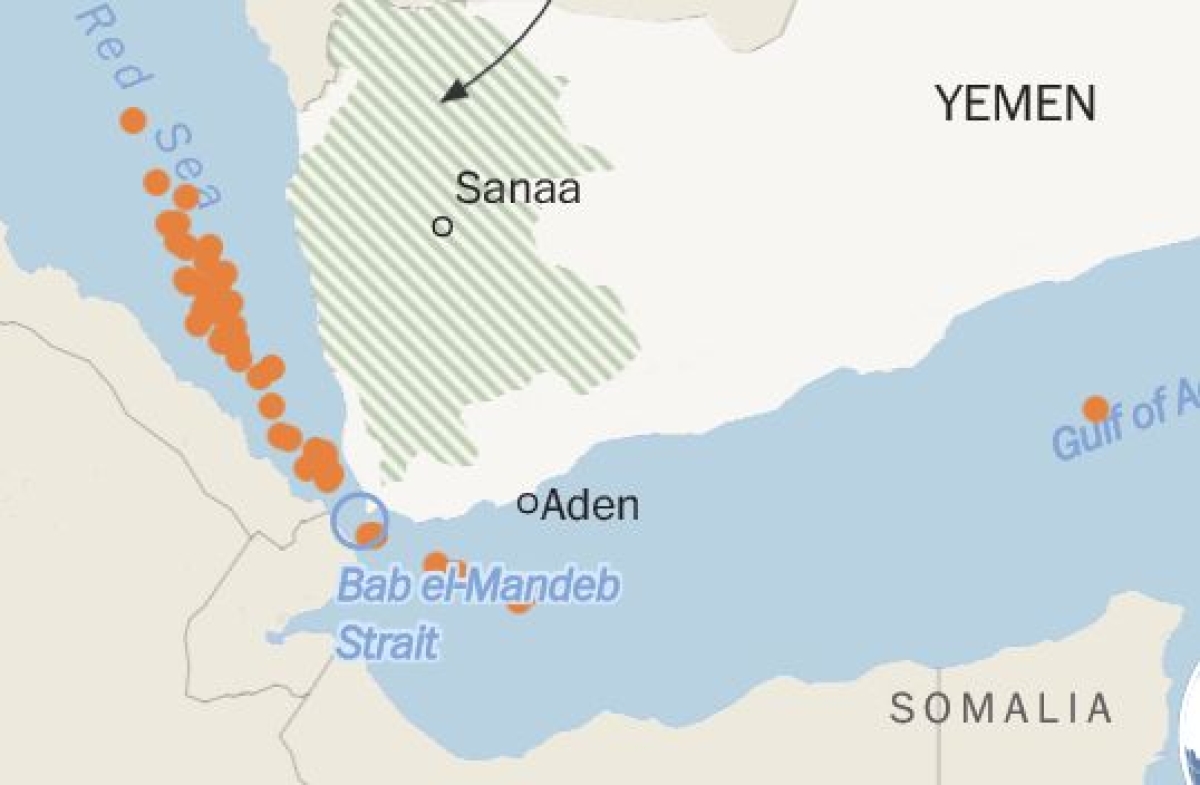Schifffahrt im Roten Meer von Houthis weitgehend lahmgelegt

Angriffe der Houthis im Roten Meer, Bildquelle: X (Twitter)
Während das erste von den Houthis im Roten Meer attackierte Schiff gesunken ist, setzt die vom Iran unterstützte Miliz ihre Angriffe fort.
Die Houthis zeigen sich dabei unbeeindruckt von Angriffen auf ihre Basen und Abschussrampen und trotzen auch einer internationalen Koalition, die die Durchfahrt durchs Rote Meer sichern will.
Inzwischen ist diese extrem wichtige Route so gefährlich geworden, dass viele Reedereien sie meiden:
Iran-backed Houthis have effectively closed the Red Sea with their missile and drone strikes on commercial vessels. They maintain that they act in support of Palestinians and target only ships that are somehow related to Israel or its main supporters, US and Britain. But very few transport companies are willing to risk it.
“Just about all (dry bulk grain) vessels going from the Americas and western Europe are avoiding the Red Sea,” according to Reuters. “The only exception is vessels going to Iran, they’re still taking the Red Sea route when shorter.”
Wirtschaftliche Auswirkungen
Die Umwege, die nun in Kauf genommen werden müssen, treffen, so wie die Houthis es wollen, die israelische Wirtschaft, zwar nicht so schwer, wie von der Miliz erwünscht, aber trotzdem spürbar. Zudem wächst auch hier der internationale Druck auf die israelische Regierung, den Krieg gegen die Hamas zu beenden. Erst dann, so Erklärungen, der Miliz, würde auch der Beschuss von Schiffen im Roten Meer aufhören:
The global economic impacts of the Red Sea strikes, rather than specific effects on Israel, could come to be the larger source of pressure, contributing to a sense among Israel’s allies that the entire region could spiral into violence. As long as the war in Gaza continues, the risks that the situation in the Red Sea degrades further and that regional skirmishes such as on the Lebanese border develop into war “increase exponentially,” said Dan Arenson, a geopolitical risk adviser at J.S. Held, a global risk consultancy. “I think the Biden administration gets that.”
Increased maritime shipping rates from China to North America are forecast to drive consumer prices up, according to a report Tuesday by Freightos, a freight quoting firm. If the U.S. economy is hit by the Houthi attacks, that could push President Biden to press Israel to wind down its war in Gaza, Arenson said. “Patience is very clearly starting to run thin,” he said. Biden administration officials, including Secretary of State Antony Blinken, have in recent weeks struck a harsher tone with Israel amid concern over the mounting civilian death toll and rising regional tensions.